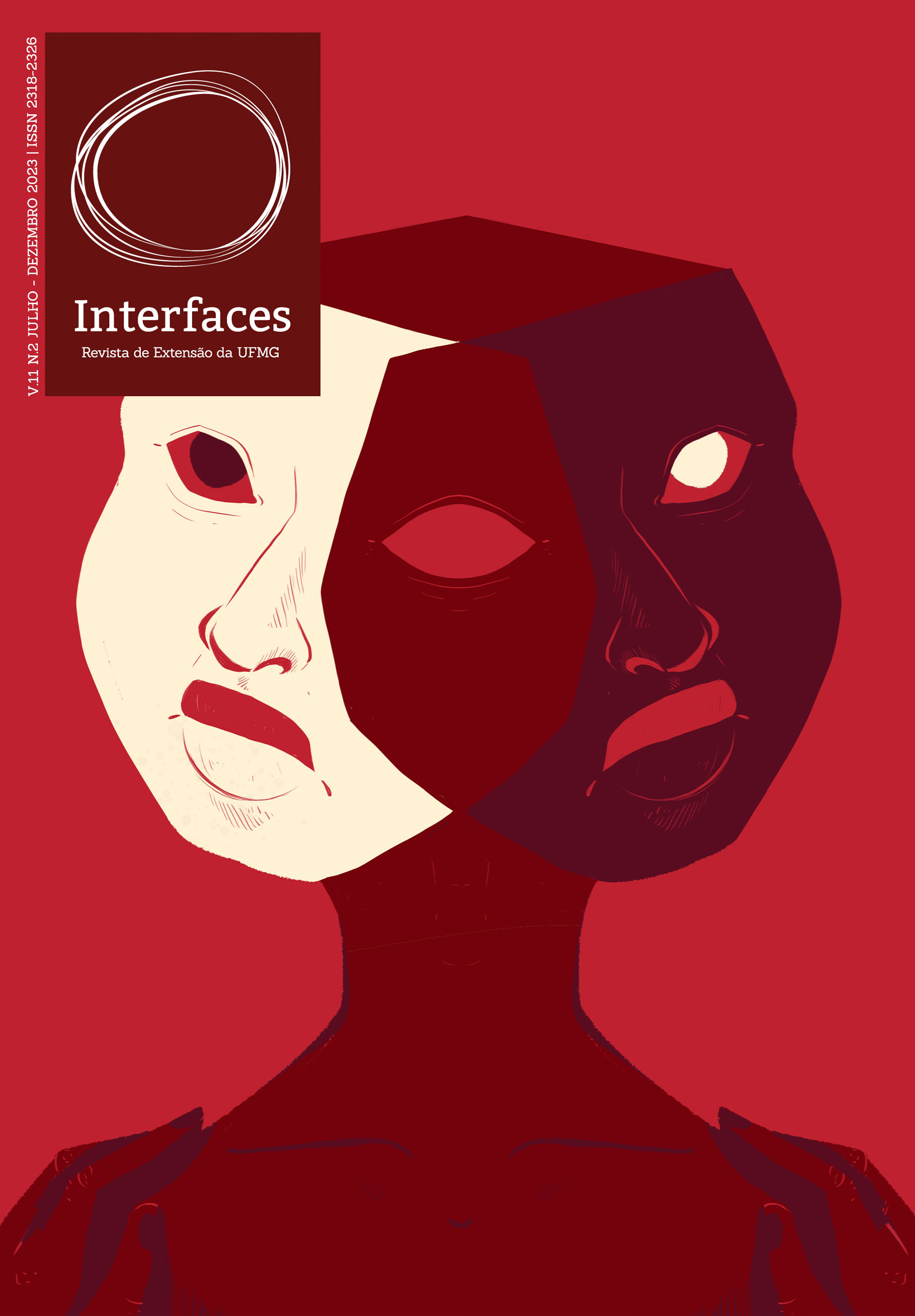STUDENT SEMINAR ON WATER SCIENCES: YOUTH PROTAGONISM THROUGH UNIVERSITY EXTENSION
PROTAGONISMO JOVEM POR MEIO DA EXTENSÃO UNIVERSITÁRIA
Keywords:
World Water Day, SDCA, YouthAbstract
Water, a natural resource limited both in quantity and quality in time and space, is essential for the maintenance of life. World Water Day is a date dedicated to promoting society's involvement in the debate on water resources, given the need for their use and conservation. To enrich the debate and encourage participation and awareness on the various topics involved, students of the Graduate Program in Water Resources and Environmental Sanitation of the Institute of Hydraulic Research of the Federal University of Rio Grande do Sul have been promoting annually a university extension event called “Student Seminar on Water Sciences (SDCA)”, in the context the World Water Day. Taking place in an online format since 2020, SDCA encourages students to take a leading role, look for interdisciplinary solutions for water resources management, and promote the popularization of water sciences by focusing the debate on the globally relevant theme associated with World Water Day. In all its editions, the event had the participation of a heterogeneous public from different places in Brazil, contributing positively to the practice of socio-hydrology.
References
Avilés, R. M. H., & Romero, R. T. (2012). Patrimonio hidráulico y cultura del agua en el Mediterráneo. Papeles de Geografía, 56, 221–223.
Brasil. (1997). Lei No 9433, de 8 de janeiro 1997. Institui a Política Nacional de Recursos Hídricos, cria o Sistema Nacional de Gerenciamento de Recursos Hídricos, regulamenta o inciso XIX do art. 21 da Constituição Federal, e altera o art. 1o da Lei no 8.001, de 13 de março de 1990, que modificou a Lei nº 7.990, de 28 de dezembro de 1989.
Brasil. (2015). Portaria Interministerial No 390, de 18 de novembro de 2015. Institui o Plano Nacional de Juventude e Meio Ambiente-PNJMA.
Bravo, J. M., Sanagiotto, D. G., & Castro, N. M. R. (2019). Os 50 anos do Programa de Pós-Graduação em Recursos Hídricos e Saneamento Ambiental do Instituto de Pesquisas Hidráulicas da UFRGS. Associação Brasileira de Recursos Hídricos, XXIII Simpósio Brasileiro De Recursos Hídricos, 1–10.
Cousins, T., & Smits, S. (2005). Report of the national seminar on initiatives and experiences on multiple use approaches to water. Held on: 24 th August 2005 SANBI Auditorium-Pretoria Botanical Gardens.
Englund, G. (1995). Seminar on "Strategy for Water Pollution Abatement in View of the Norwegian Experience. https://niva.brage.unit.no/niva-xmlui/handle/11250/208529
Falcão, S. M. P., Moura, M. R. F. de, & Holanda, R. M. de. (2020). O engajamento de juventudes na gestão das águas: desafios e perspectivas na bacia hidrográfica do rio Capibaribe.
REMEA - Revista Eletrônica Do Mestrado Em Educação Ambiental, 37(3), 50–68. https://doi.org/10.14295/remea.v37i3.11221
Farias, G. B. de L. de, Rodrigues, R. S., & Cardoso, S. R. P. (2019). A Extensão Acadêmica Como Ferramenta Para Aprendizagem No Ensino Superior. Holos, 2, 1–15. https://doi.org/10.15628/holos.2019.9133
Getirana, A., Libonati, R., & Cataldi, M. (2021). Brazil is in water crisis — it needs a drought plan. Nature, 600(7888), 218–220. https://doi.org/10.1038/d41586-021-03625-w
Holcomb, D., Palli, L., Setty, K., & Uprety, S. (2021). Water and health seminar and special issue highlight ideas that will change the field. International Journal of Hygiene and Environmental Health (226). Elsevier GmbH. https://doi.org/10.1016/j.ijheh.2020.113529
Instituto Nacional de Pesquisas Espaciais - INPE. (2022). Condições atuais do ENOS: La Niña. Centro de Previsão de Tempo e Estudos Climáticos. http://enos.cptec.inpe.br/
Kobiyama, M., Mota, A. de A., & Corseuil, C. W. (2008). Recursos hídricos e saneamento (1st ed.). Organic Trading.
Kobiyama, M., Vanelli, F. M., Oliveira, H. U., Vasconcellos, S. M., Campagnolo, K., de Brito, M. M., & Moreira, L. L. (2020). Uso da Bacia-Escola na Redução do Risco de Desastres: uma abordagem socio-hidrológica. Redução do Risco de Desastres e a resiliência no meio rural e urbano(2nd ed.), 510–533.
Magnusson, T. S. (2005). Summary and conclusions from the SIWI Seminar for Young Water Professionals Food and urban security-breaking the urban/rural division in water management. Water Science e Technology, 51(8), 187-188. https://iwaponline.com/wst/
article-abstract/51/8/187/11713/Summary-and-conclusions-from-the-SIWI-Seminarfor?redirectedFrom=fulltext
Matos, I. B., Barbato, P. R. B. R., Mendes, E. M. M. M., & Da Silva Sagaz, R. A. da S. S. A. (2020). Do processo discursivo à agenda operativa: gestão das águas e participação social no Oeste catarinense. Revista Cadernos Do Ceom, 33(52), 9. https://doi.org/10.22562/2020.52.01
Maynard, E. (2020). An overview of a seminar on patient infections and drinking water management within healthcare buildings in the UK Perspectives in Public Health, 140(2). https://journals.sagepub.com/doi/10.1177/1757913919899581
Serban, G. (2021). Air and Water Components of the Environment International Conference dedicated to World Meteorological Day and World Water Day. Directory of Open Access Journals (DOAJ) - Not for CDI Discovery Analele Universității București. Geografie (1977), 70(1), 211–214. https://doi.org/https://doi.org/10.5719/aub-g/70.1/14
Silva, T. A. A. (2016). Políticas públicas de juventude e meio ambiente: o que a percepção socioambiental dos jovens pode dizer? Ciências Sociais Unisinos, 52(2), 214–222. https://doi.org/10.4013/csu.2016.52.2.08
Soriano, R. de la C., Martín, M. de la C. P., & Toledo, M. A. R. (2022). Systematization of experience in environmental education: the contest for World Water Day. Revista Mendive, 20(1), 139–157.
UNIFESP, U. F. de S. P. (2021). I Seminário Discente Diversidade e Desafios na Produção Científica - Caderno de Resumos (Á. de S. Maiotti (ed.); pp. 1–134). Álvaro de Souza Maiotti. https://doi.org/10.34024/9786587312217
United Nations - UN. (1993). Observance of World Day for Water - Resolution adopted by the General Assembly 47 / 193. https://digitallibrary.un.org/record/159180
United Nations Educational Scientific and Cultural Organization - UNESCO. (2022). World Water Day. https://en.unesco.org/commemorations/waterday
Universidade Federal do Rio Grande do Sul - UFRGS. (2019). Resolução no 75/2019. Conselho de Ensino, Pesquisa e Extensão (Vol. 2019, p. 12).
UFRGS. (2022a). Seminários. Programa de Pós-Graduação em Educação em Ciências. https://www.ufrgs.br/ppgeducacaociencias/calendario/seminarios-discentes/.
UFRGS. (2022b). (In) Certezas na pesquisa: Construindo escolhas e percursos. https://semidiscomufrgs.wordpress.com/.
UFRGS. (2022c). Seminário Discente. Programa de Pós-Graduação em Sociologia. https://www.ufrgs.br/ppgs/index.php?formulario=noticias&metodo=0&id=508&voltar= sim.
UFRGS. (2022d). Seminário Discente em Ciências das Águas. https://www.ufrgs.br/sdca/
World Health Organization-WHO, & United Nations Educational Scientific and Cultural Organization - UNESCO. (2021). Progress on household drinking water, sanitation and hygiene 2000-2020: five years into the SDGs


